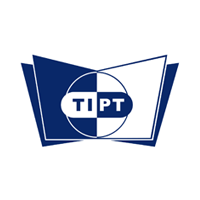
Gene therapy could be a revolutionary way to treat rare and deadly diseases for which today’s treatments are limited. As opposed to traditional biopharmaceutical drugs, gene therapy entails introducing healthy genes into a person’s body to replace unhealthy ones. Currently, those who are suffering from rare illnesses must undergo costly and time-consuming drug treatments, but with gene therapy, a single treatment may one day provide a quick cure.
Gene therapy holds a lot of promise for patients and it may also revolutionize pharmaceutical quality assurance and quality control since the quality control mechanisms that have long worked for traditional drugs will need to be significantly revised for gene therapies. Here’s a look at how gene therapy presents exciting new challenges and opportunities for anybody considering a career in quality assurance and control.
Pharmaceutical Quality Assurance and Quality Control Will Need to Adapt to Strict Time Constraints
One aspect of gene therapy that differentiates it from traditional drug therapy is that genes are living. That means they cannot be stored in the same manner that traditional drugs can since genes might degrade at room temperature or may become damaged if frozen. Pharmaceutical quality assurance and quality control for gene therapy must be adapted to accommodate the limited time allotted for testing. This will make logistics planning extremely important, since getting testing done quickly and efficiently before the genetic material degrades will be a top concern.

Pharmaceutical Quality Control Is Challenging Due to Small Sample Sizes
Gene therapies are currently in the experimental stages and have only been used or tested on a limited number of people. However, as they move out of research labs and into clinics, manufacturers will need to meet a large demand for gene therapies by producing larger quantities. This is called “scaling up” and gene therapies will be affected because of their complex development process.
One main issue that will present itself when scaling up gene therapies relates to how scientists get the genetic material into a patient’s body. Currently, the safest and most effective way to do this is through a viral vector, which replicates itself when it enters the body and delivers DNA that can help treat a patient’s condition. Viral vectors are extremely expensive and difficult to manufacture in large quantities. That difficulty leaves manufacturers with relatively few samples they can conduct quality control tests on.
Quality control tests help ensure that the gene therapy is manufactured to a consistently high standard, so if there aren’t enough viral vectors available, completing the necessary quality control tests will be difficult. A good quality assurance program teaches students the importance of quality control during the manufacturing process.
Throughout the training, you’ll learn that if a new drug cannot be subjected to rigorous quality control measures, producing it in large quantities will be challenging.

Regulators Need to Determine What the Proper Quality Control Protocols Are
Gene therapy is still an emerging technology and very few have been approved for clinical use. As gene therapies become more widely available in the future, regulators will need to develop quality control requirements that ensure the final product is safe and consistent. The development of these new requirements will be challenging since gene therapies are so different from traditional medicines.
Regulators face a tough task in setting up appropriate regulatory measures for gene therapies. On the one hand, quality assurance requirements must be strict enough that gene therapies are manufactured to a high and consistent standard. But on the other hand, if those standards are too strict then they may stifle research.
Are you interested in one day having a role in the quality assurance and control of gene therapies?
Contact Toronto Institute of Pharmaceutical Technology to learn more about our quality assurance courses.
